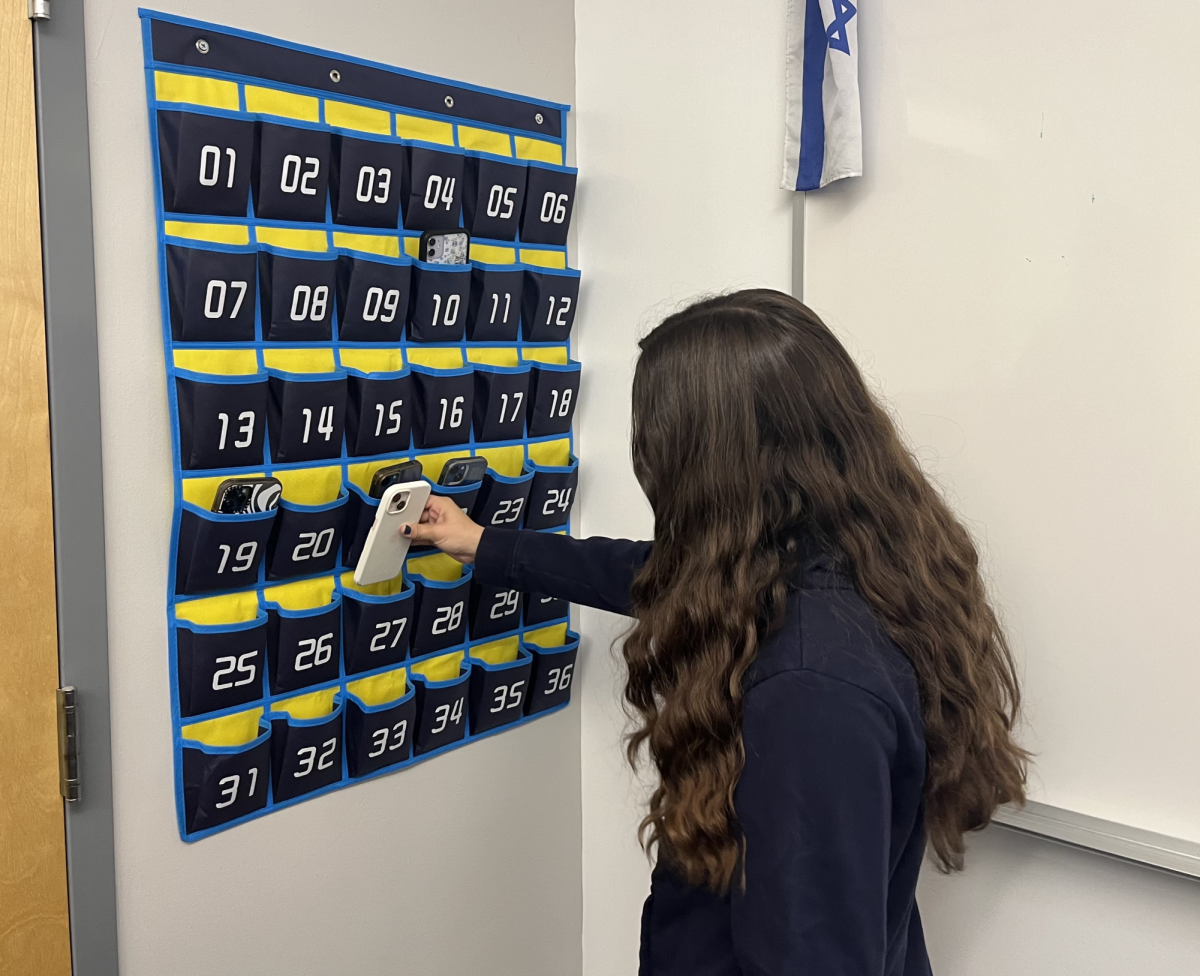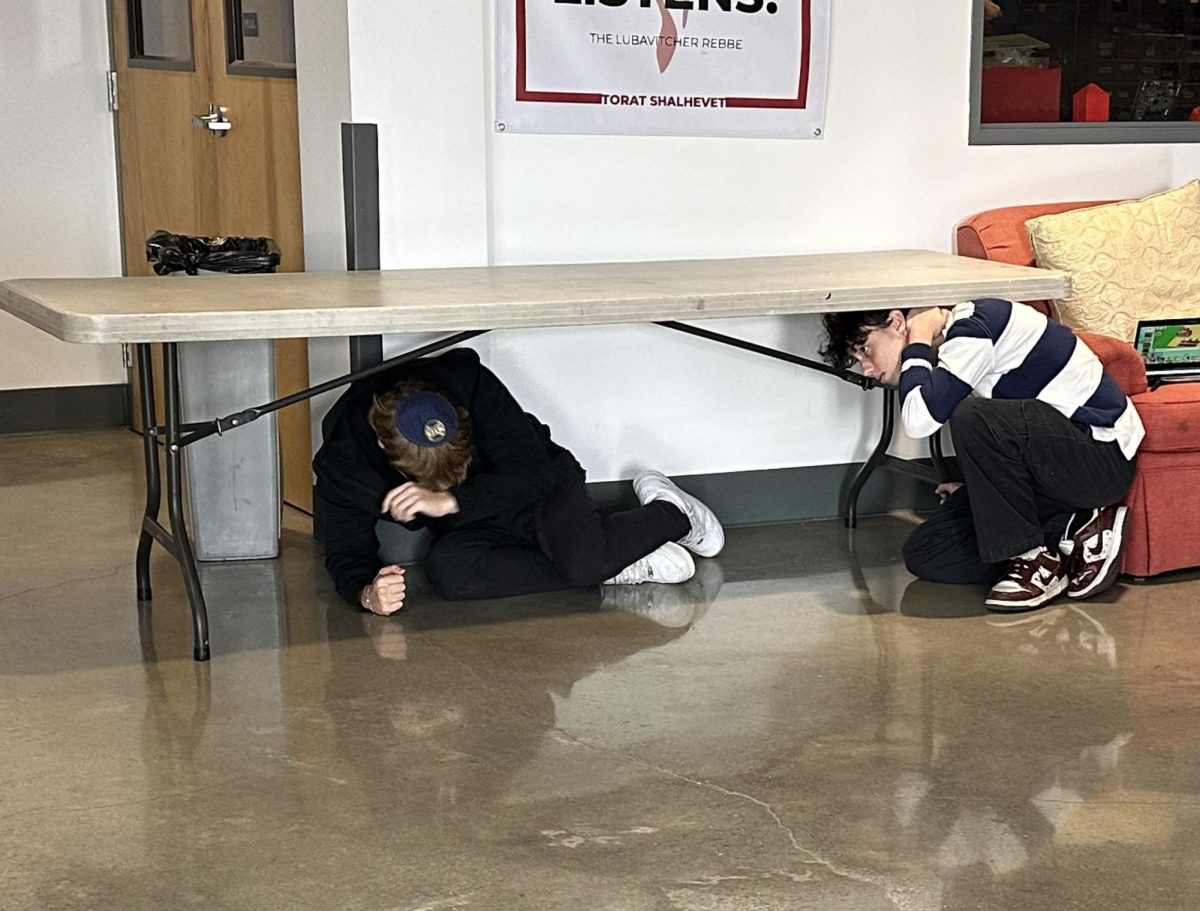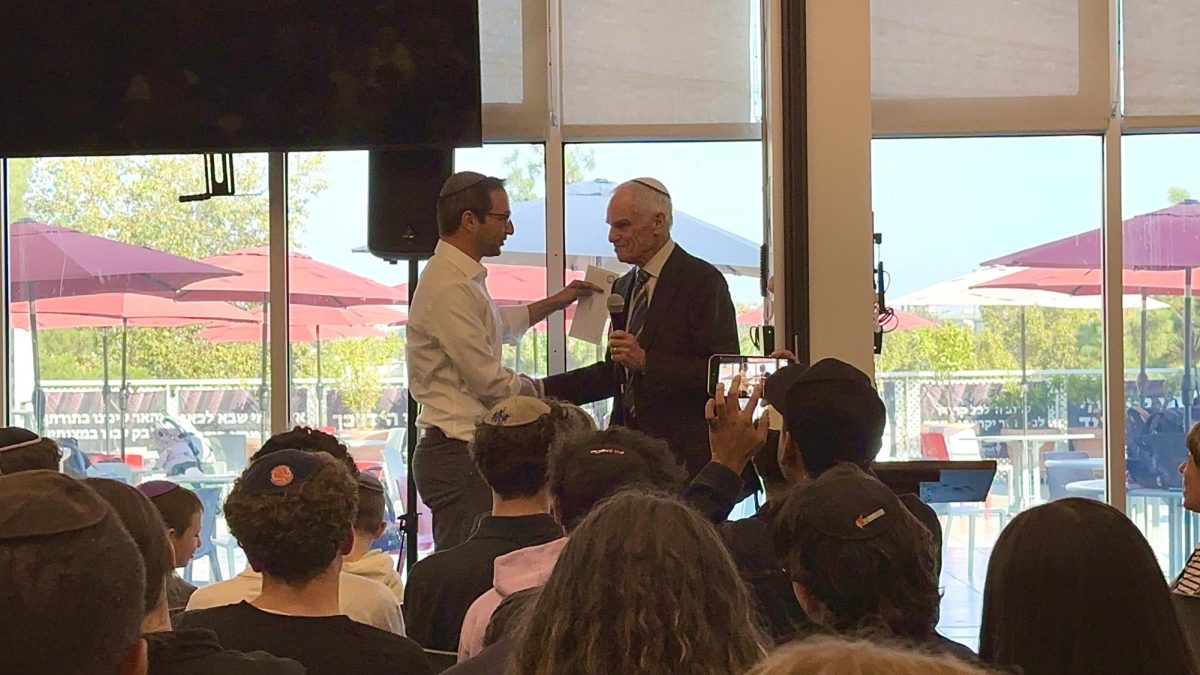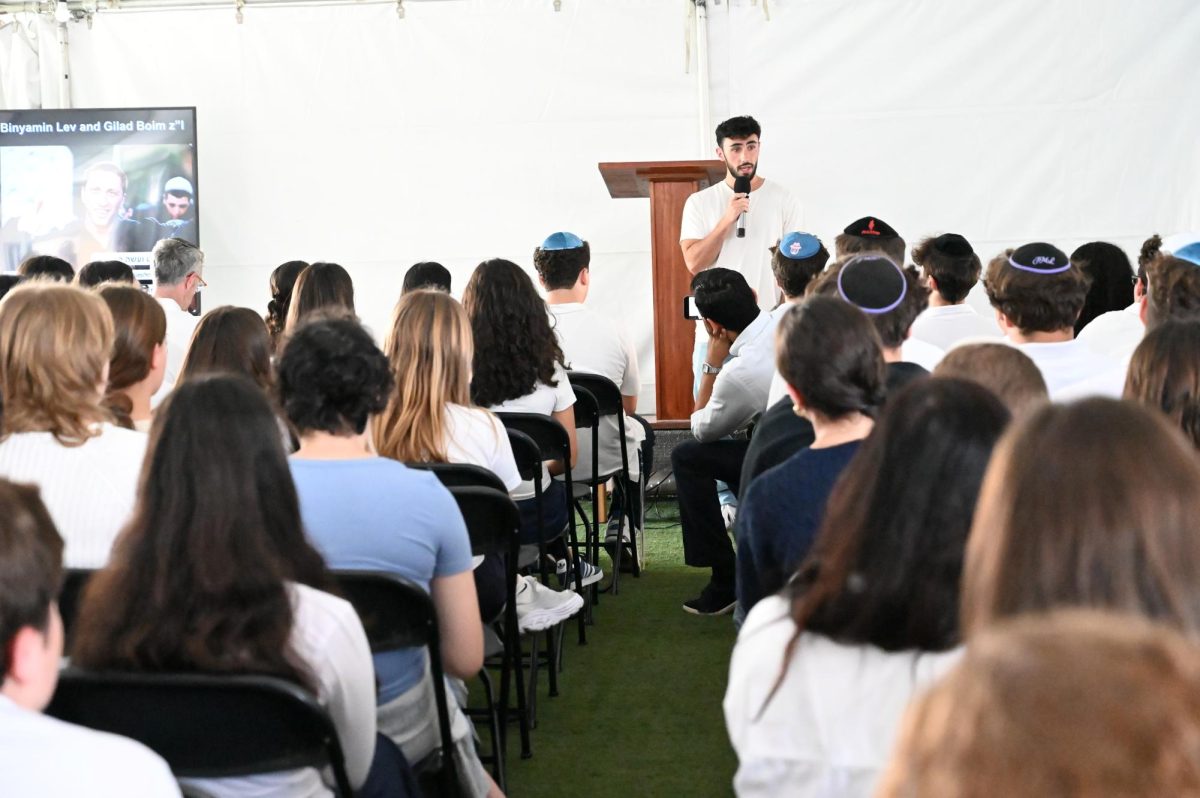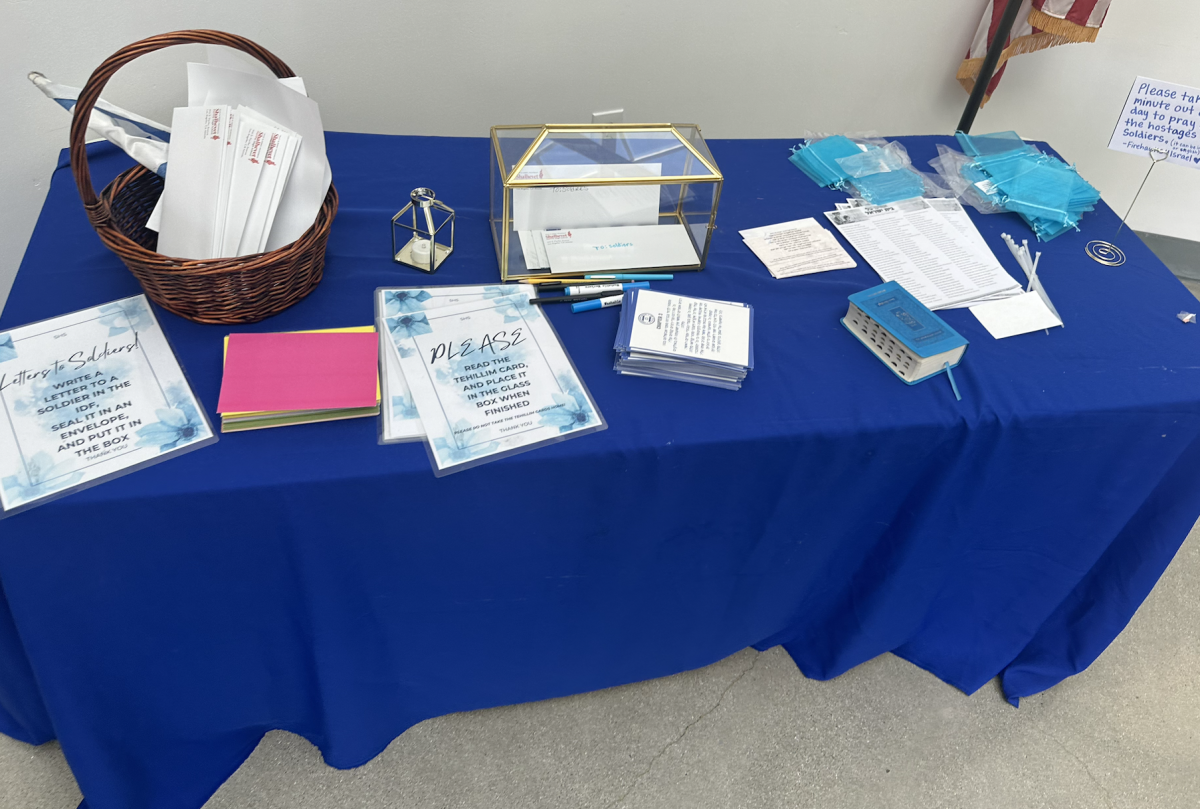Administration introduced a new cell phone policy at the beginning of the school year that prohibits all cell phone use and possession during class periods and community programmed time, including davening, Town Hall, and assemblies.
Rabbi Block announced the policy in an email to the Shalhevet community sent on Aug. 23, a few days before the first day of school. This shift came following changes in school cell phone policy across the Los Angeles community.
“As I’m sure you’ve heard, the LA community (and beyond) is abuzz with recognition of the severe impact that cell phone use has on children and young adults,” Rabbi Block wrote in the email. “Thank God for that; the detriments to students’ mental health, social development, and academic achievement are well-documented and muvan me’eilav (obvious and easily observable), and it’s about time we addressed them.”
Last year, the Just Community ruled that phones would no longer be allowed in Town Hall, and boxes were placed in the back of the gym to collect phones. This year, adding to that rule, wall-hanging cell phone holders with individual phone pockets have been placed in all Shalhevet classrooms. Students place their phones in the holders at the beginning of each class and pick them up at the end.
Cell phone use is prohibited for both students and teachers during class periods.
If a student is caught with a phone during prohibited times, there is a three-tier system for implementing consequences for the violation.
On a first offense, the phone is confiscated for the rest of the day. A second offense results in confiscation and requires a 7:00 am Sunday Zoom meeting with a school administrator and loss of phone privileges for the week. If a student violates the policy a third time, in addition to the phone’s confiscation and the required Zoom call, phone privileges are revoked for a month and the student is banned from participating in co-curriculars for two weeks.
In previous years, cell phone use was neither explicitly allowed nor prevented in a class setting; it was at the discretion of each teacher. While many did not allow phone use in the classroom, some incorporated it into their lesson plans and even required it.
Teachers have expressed mixed emotions toward the new policy.
Morah Ortal Klyman, the Hebrew Department Chair, said that the absence of phones during class has improved student behavior in class compared to last year.
On the other hand, she is no longer able to use certain tools, like having students submit audio recordings of them speaking Hebrew to better assess usage and pronunciation.
“I see it in a positive way,” Morah Klyman said, “because the students are very focused on learning and being present in class discussions and being very respectful to one another – not doing things that they’re not supposed to be doing.”
But because she enjoys incorporating technology in her classroom, she said that the new policy is challenging her to find new ways to do so without violating the policy.
Rabbi Ari Schwarzberg, Judaic Studies teacher and 12th Grade Dean, used phones in his classes in previous years to give quizzes through apps like Kahoot. Despite certain challenges similar to Morah Klyman, he sees the policy overall as positive.
“It puts a little bit of ownership in students,” Rabbi Schwarzberg said, “rather than just being a black-and-white policy that there are no phones on campus.”
In the email about the new policy, Rabbi Block acknowledged that it is subject to change because it is part of a wider effort to support the Shalhevet student body.
“Naturally, then, this approach may evolve and expand to allow us to stay attuned to the needs of our students, collect appropriate feedback, and review the latest research and developments in educational technology.”
Rabbi Block also wrote that other Yeshiva day schools in the community have implemented similar new policies, but said that the choice to change the Shalhevet rules was not just an attempt to follow the lead of other schools.
“As tempting (and even easy) as it may be, it is never in our students’ best interest to blindly replicate other institutions’ policies,” Rabbi Block wrote. “Our responsibility is to make thoughtful, informed decisions that are best for our students and community.”
Junior Ariella Adlerstein, who transferred to Shalhevet this year from YULA Girls, said that she found the policy similar to YULA’s policy last year, and that she was glad it didn’t completely prohibit phone use.
“I’ve never really gone to school with my phone,” said Ariella. “But I definitely like that we at least have them in school instead of just not taking them away fully.”
Senior Tamar Rose felt that the phone policy was a positive change, although its enforcement is not completely uniform.
“I think it’s a good thing to keep kids focused and off their phones, but it doesn’t get enforced that well in all classes,” she said. “Sometimes I’ll see kids leave their phones in their bags or on the desks, but people don’t go on them, even when they’re not in their pockets.”
In his email, Rabbi Block also requested parent cooperation to help make the policy effective.
“I sincerely believe that any approach towards mitigating cell phone use cannot solely be in the hands of the school,” he wrote. “This must be a holistic communal initiative.”

